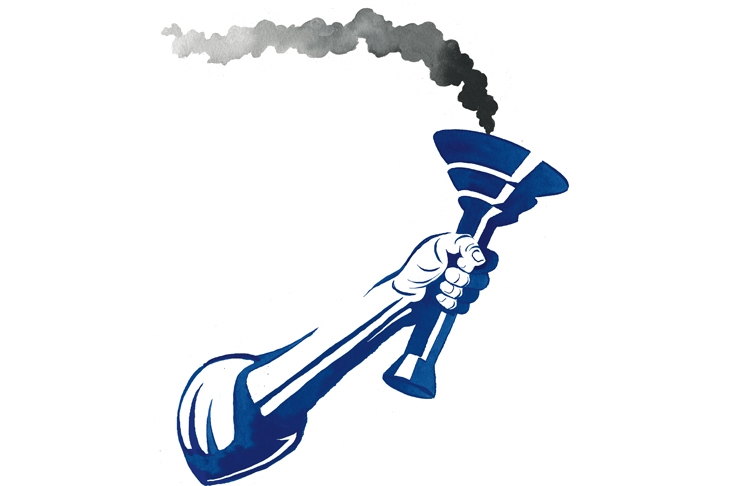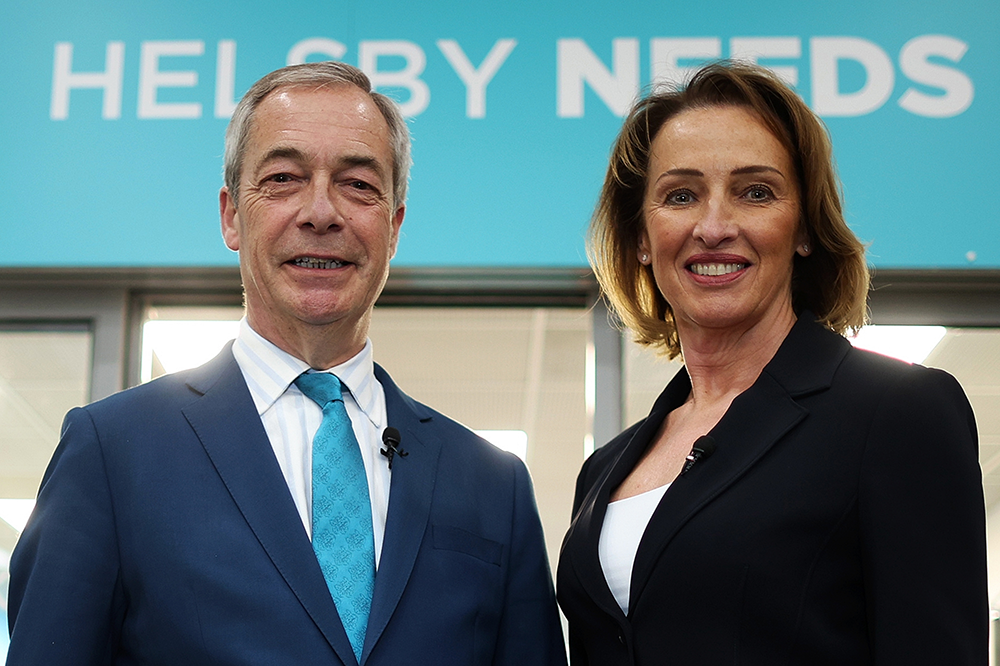A couple of weeks ago we were told it was Rishi Sunak’s best week ever. Now, it is hard to even remember why. The Rwanda Bill was passed, and the Prime Minister had some important photocalls playing statesman with European allies. Now it seems nothing the party can do will shift the dial.
The local elections suggest this is the case. Number 10 have pointed to the projected national share (PNS) of the results, which suggests there will be a hung parliament at the next election. This is statistically illiterate self-delusion. The PNS is a flawed metric which ignores differential turnout, regional variations and overweighs the success that minor parties have at a local level. Anyone putting stock in it as a predictor of the general election is either trying to fool you or fool themselves. It is hard to overstate how bad these locals were for the Conservative party.
At the mayoral level, the party was close to wiped out. Andy Street couldn’t hold the West Midlands, despite his personal brand and Labour haemorrhaging votes to a Gaza-focused insurgent independent. Ben Houchen saw his majority slashed with a swing which, if repeated in the general election, would wipe out all Tory MPs in the region. The party lost every other mayoral contest, even those like North Yorkshire where they should have had a fighting chance.
In the council elections, there was a similar tale of woe. The party lost control of ten local authorities out of the 16 it held going into the election. Out of the 989 seats the Tories held before this contest, they lost 474, an attrition rate of almost half. This was a kicking. It shows the electoral peril they are in and will have damaged and demotivated the activist base. It’s a double hit.
These contests show quite clearly how the party’s popularity has sunk. More than that, they show how the country is turning on the party and wants to punish it. In the bigger contests, like the Tees and Midlands mayorships, the party name was like being lashed to a millstone for otherwise popular figures. At the same time, patterns of tactical voting stand out, showing the ‘anything but the Tories’ sentiment coming through at the ballot box.
The Lib Dem vote had a striking efficiency. Compared with 2021, when these boundaries were last fought, they got the same vote share but a quarter more seats and control of two more councils. Other parties benefitted elsewhere. In Stroud, for example, both Labour and Greens enjoyed a surge, cutting the Tories by two thirds through targeted campaigning and voting. In Castle Point, localist parties took every seat, with no mainstream parties on the council at all. If this sort of approach is mirrored at the general election it would be a worst-case scenario for the Tories.
More desperately for the Conservative party, there is no real lesson that they can take from this election, beyond the idea that almost everyone wants them out. Councillors were fighting for their lives across the country, across geographical regions and demographics. Yes, Reform had a reasonably strong showing in some of the northern regions where they stood. But Tory voters poured over to Labour, the Lib Dems, the Greens and independents. There’s no simple pivot that could change the results.
Indeed, the only place where the Tories seemed really to outperform seems as much a symptom of their problems rather than a respite from it. Despite winning comfortably in London, Sadiq Khan’s support was below the Labour average and poor compared with some of the polling. This was largely driven by the Tory vote holding up in outer London. This repeated the trend from the Uxbridge by-election, which saw the Tories do poorly compared to previous years, but not badly enough to lose the seat.
In some ways this makes sense. The residents of outer London are, really, the big winners of the Tory party tenure. These areas are replete with people who were moderate earners but have grown rich off rising property prices. Often older, pro-Brexit, anti-immigration, and car-enthusiasts, they are on the right side of most of the fights the Tories are picking. The problem is that there simply isn’t enough of these people nationally to make an electoral difference. The message may resonate in Havering and Harrow, but it isn’t getting much further.
It seems too that the party is learning this. The deflation of the plot to oust Sunak is an admission that all is lost. No one wants to step into the breach, no one believes that there is anything that can be done to rectify the situation. This was obvious months ago and it has now solidified for the slower learners in the party. All they can do now is hunker down and see what survives the impact.
The problem is that there are now six months or more of the situation getting worse. As well as the local elections, the party has faced the chaos of double defections. Dan Poulter’s was perhaps understandable – he’s always been on the left of the party and rankled at NHS cuts as early as 2016. Natalie Elphicke’s is almost unfathomable. Worryingly for Number 10, both have chosen to make cross the floor in an almost unnecessarily damaging style.
Neither Elphicke nor Poulter will be contesting the general election for Labour. They are not extending their political careers, just creating maximum havoc. Each has given Labour a perfect cudgel to wield – one on healthcare, the most salient issue overall, and the other on immigration, the issue wavering Conservative voters care about most. They could have gone quietly, standing down like so many others, instead, they have become noisy turncoats for almost no reason. It seems the belief that the Tories shouldn’t lose, they should hurt, has spread from the public to the parliamentary party.
As the summer stretches towards an autumn, or even a winter election, it feels like the only choice Number 10 has is when to sign its own death warrant. The things it held out for a year ago – dropping inflation, hints of growth, Rwanda, NI cuts – have largely materialised and failed to move the dial.
There is little parliamentary time left and hardly any chance to introduce any new, bold measures. Even if an initiative doesn’t require legislation, getting it up and running and making an impact in 12 months feels fanciful. Meanwhile, with the weather improving, boat crossings will pick up.
Mortgage rates and higher prices will continue to bite, a constant reminder of how things have unravelled. The wet spring in particular will further hammer food prices and farmers. When you look at things that could potentially happen in future, there are far more that would be bad for the government than good for it.
Instead, it feels likely that party order will break down further. Council losses will be a real kick to local associations. Many of the hardest groundworkers will be fed up and disillusioned. In parliament, one lesson will have been learned from the mayoral contests – your personal brand might just, in a pinch, save you. MPs will be looking to distance themselves from the wider party, but the more that do this the more it creates an overall sense of incoherence. Some will pull right to Reform and others will try to intensify their moderate credentials.
The Tories are tired and widely despised, with voters trying to inflict the most pain on them as possible. There are no quick moves that can change this, the party’s voting coalition is collapsing in on itself and any move in one direction is just as likely to cause an adverse reaction as a beneficial one.
The party is out of tricks and out of ideas. The only thing it has control of is time. It can choose to hastenen its own electoral crisis or intensify it by holding on in case something dramatic changes things. It’s been doing the latter for more than a year now, and things have only gotten worse. The only question now is how long Number 10 chooses to string out its own demise.







Comments